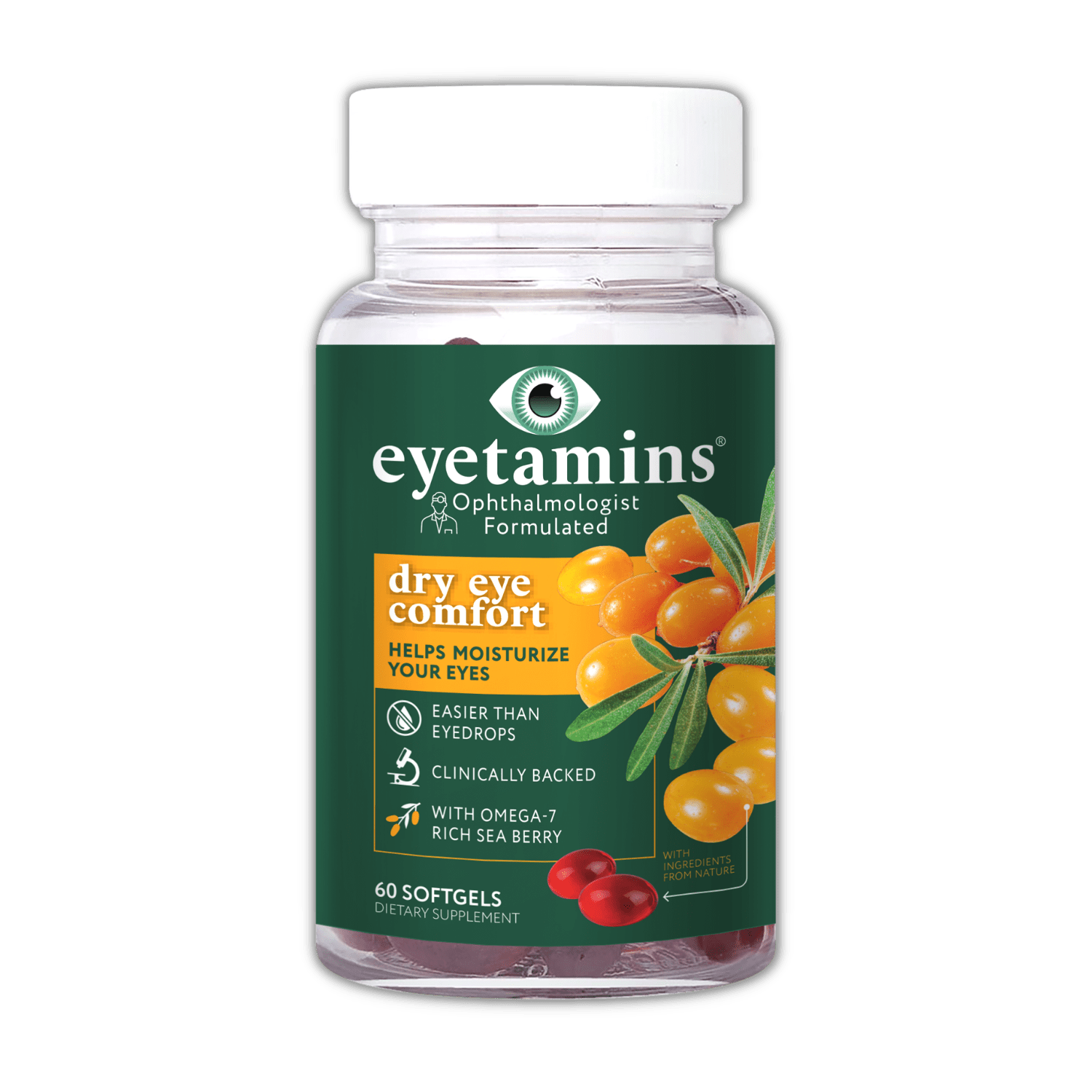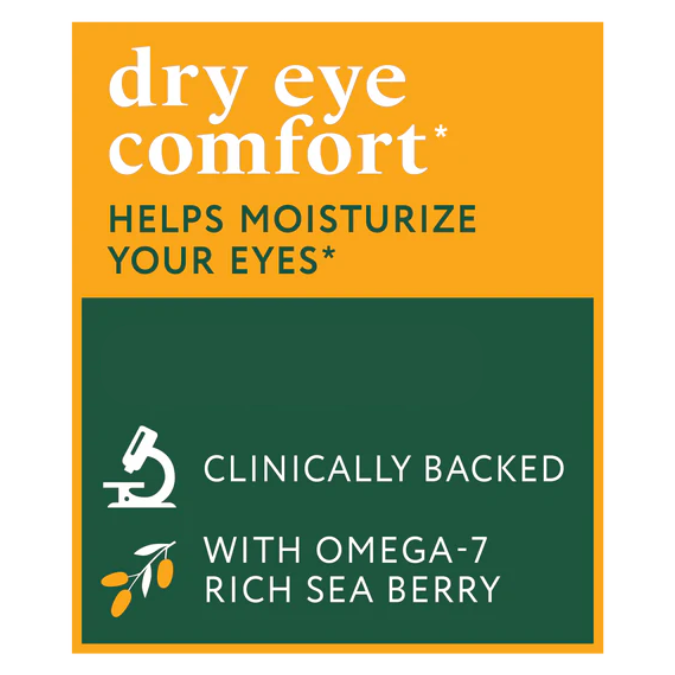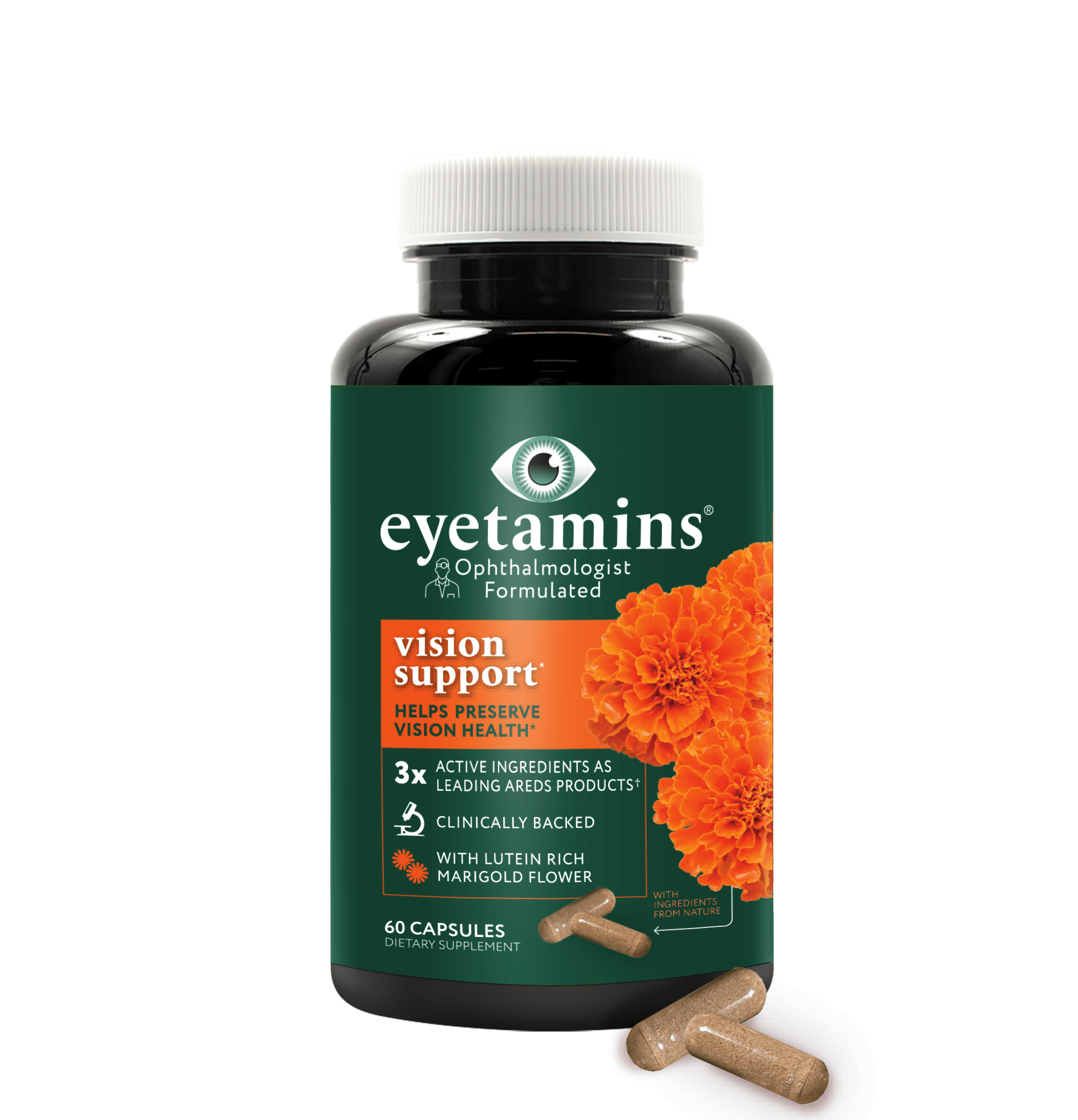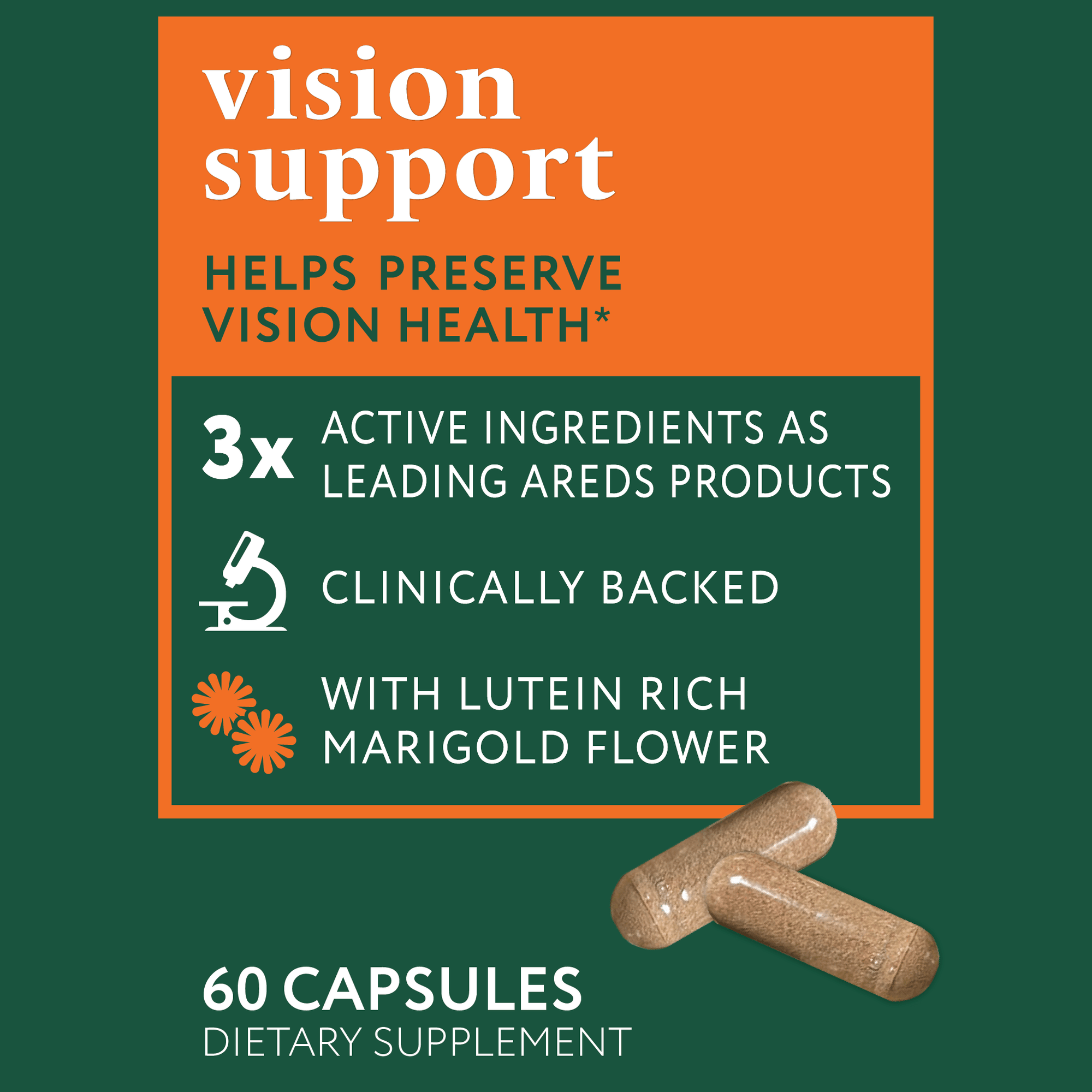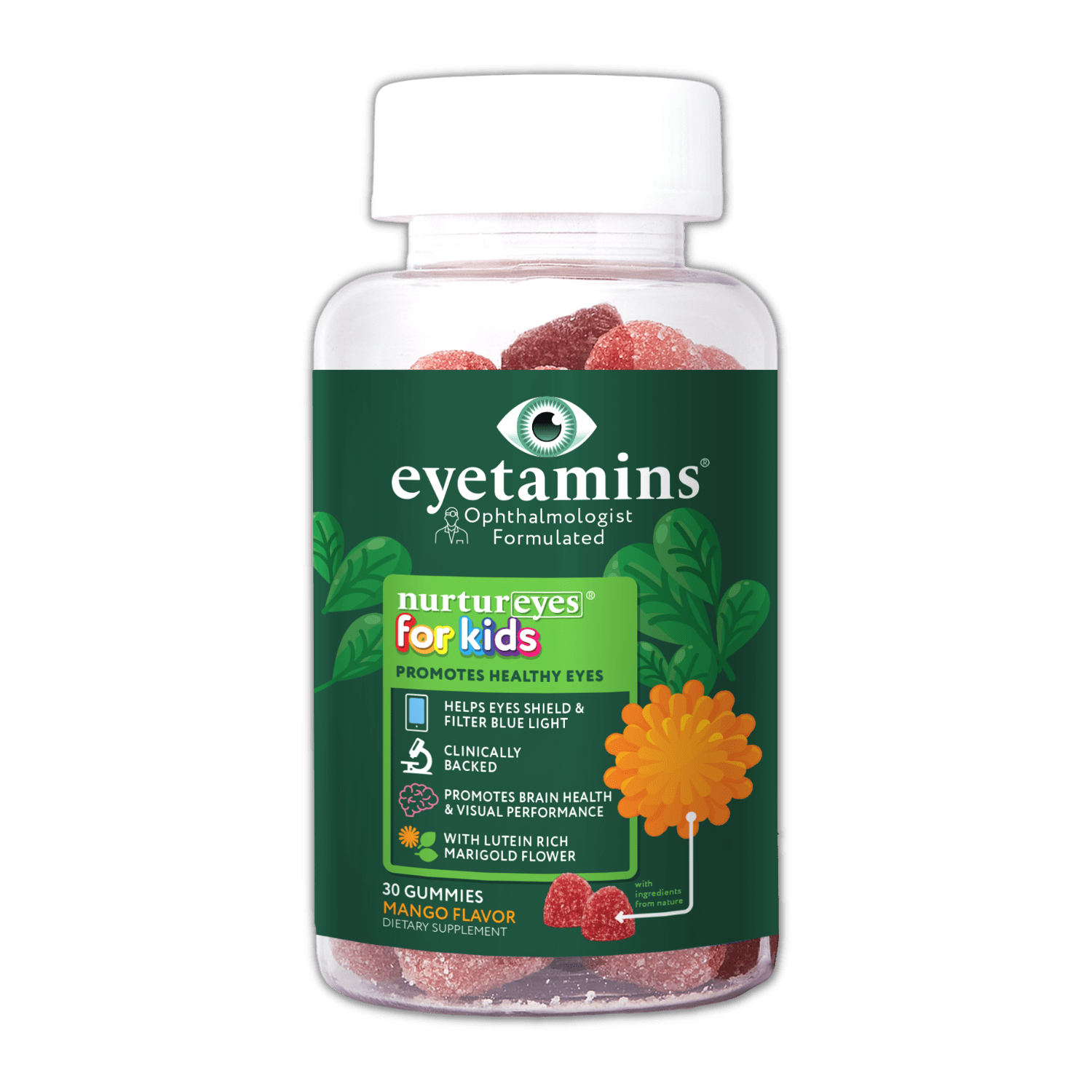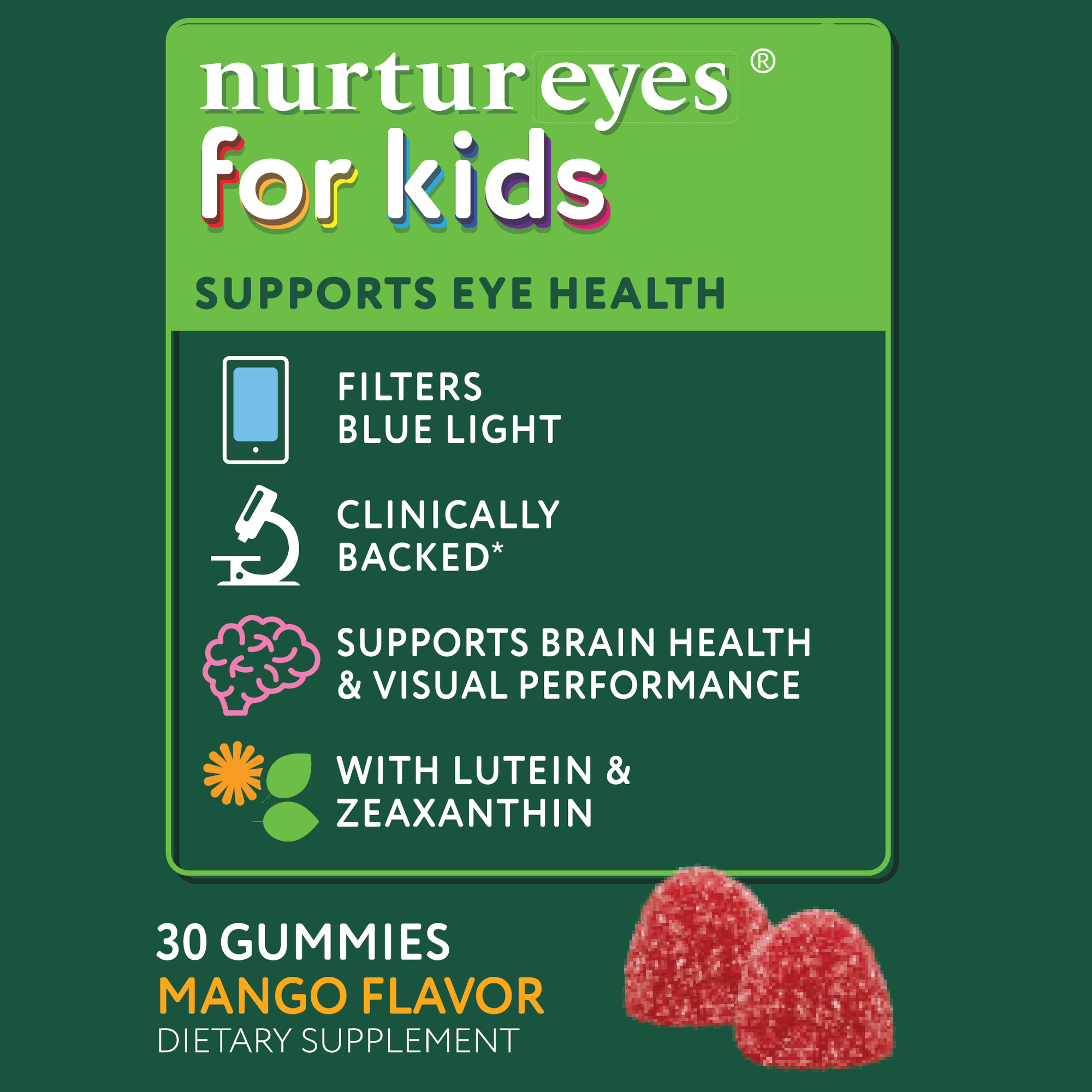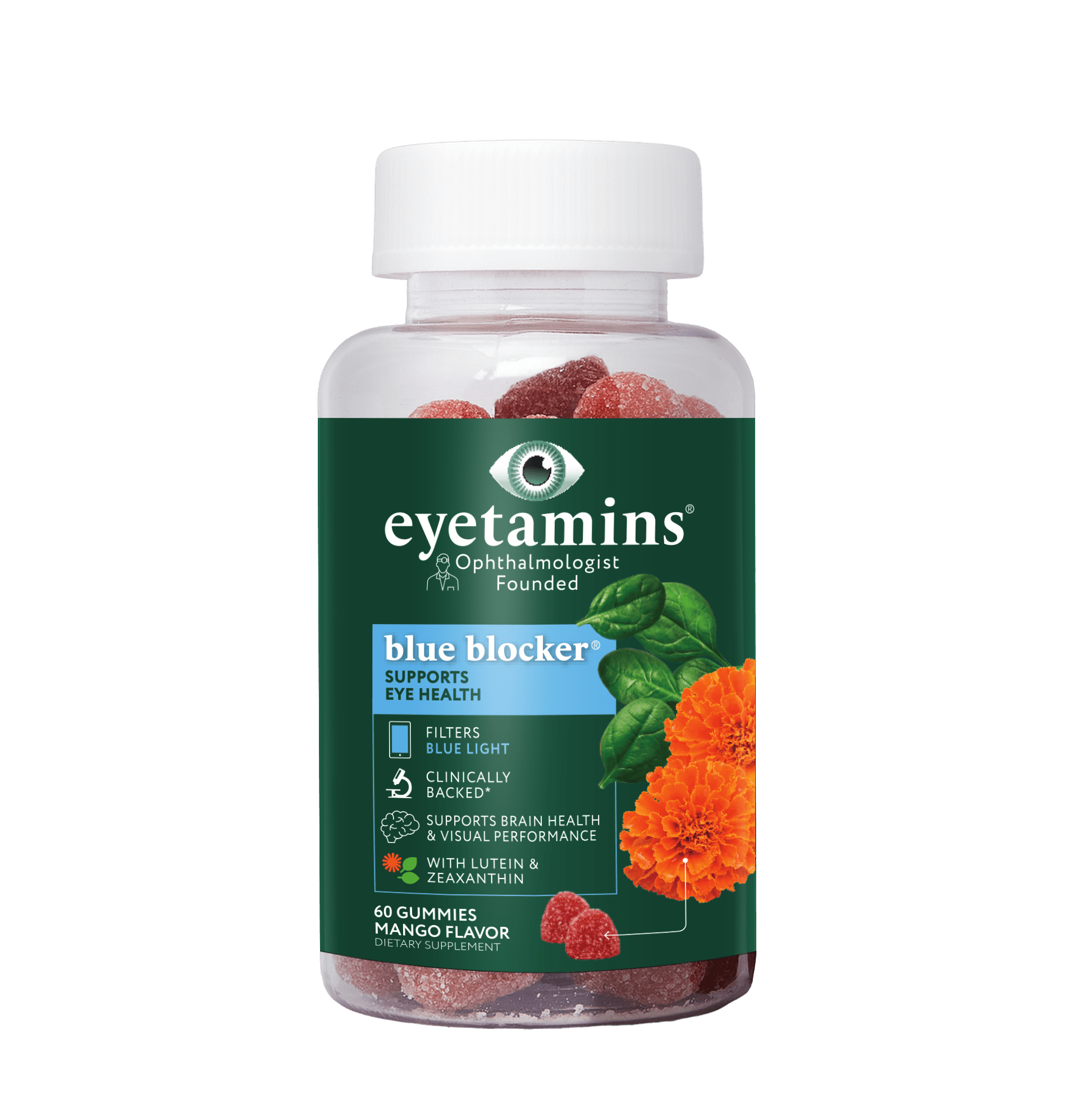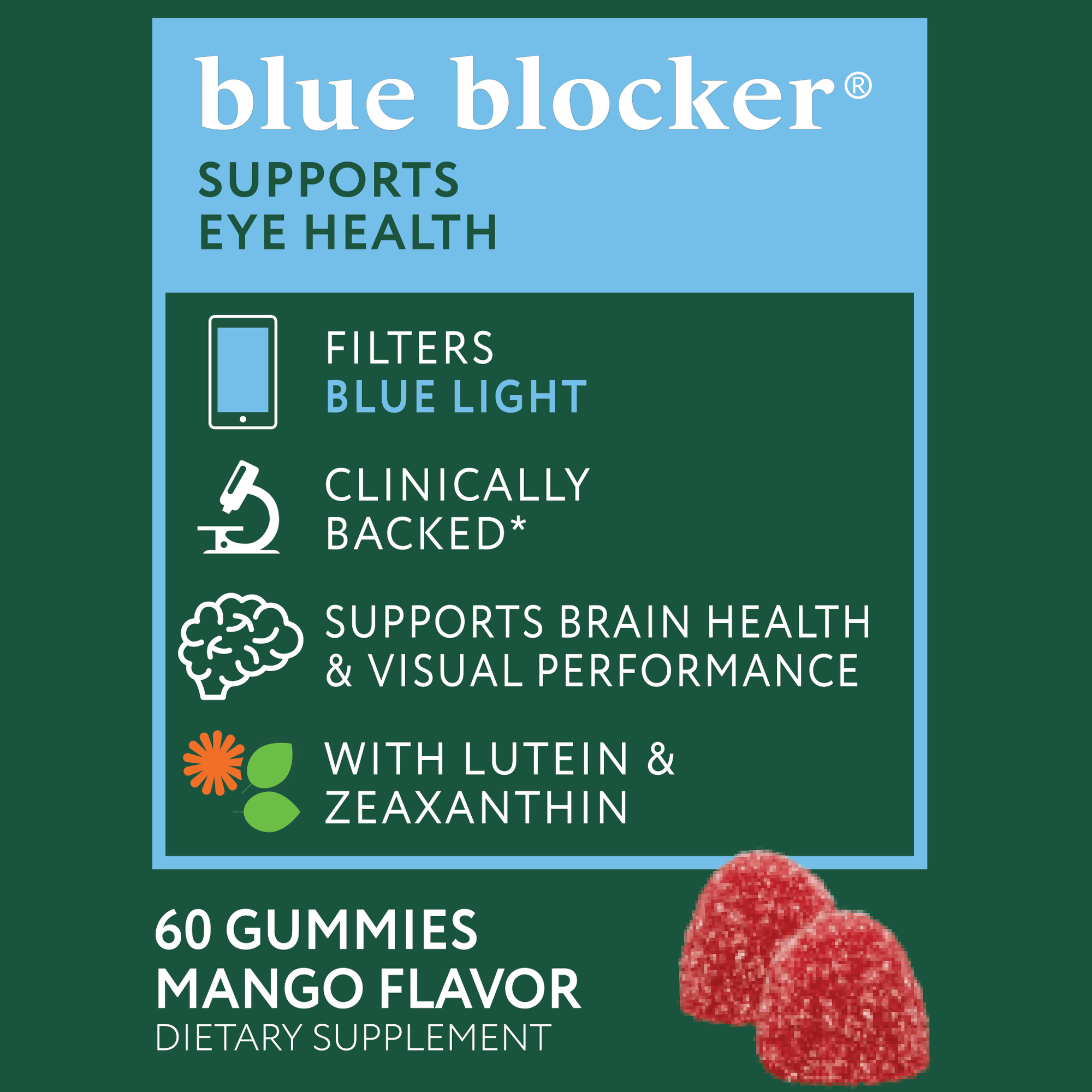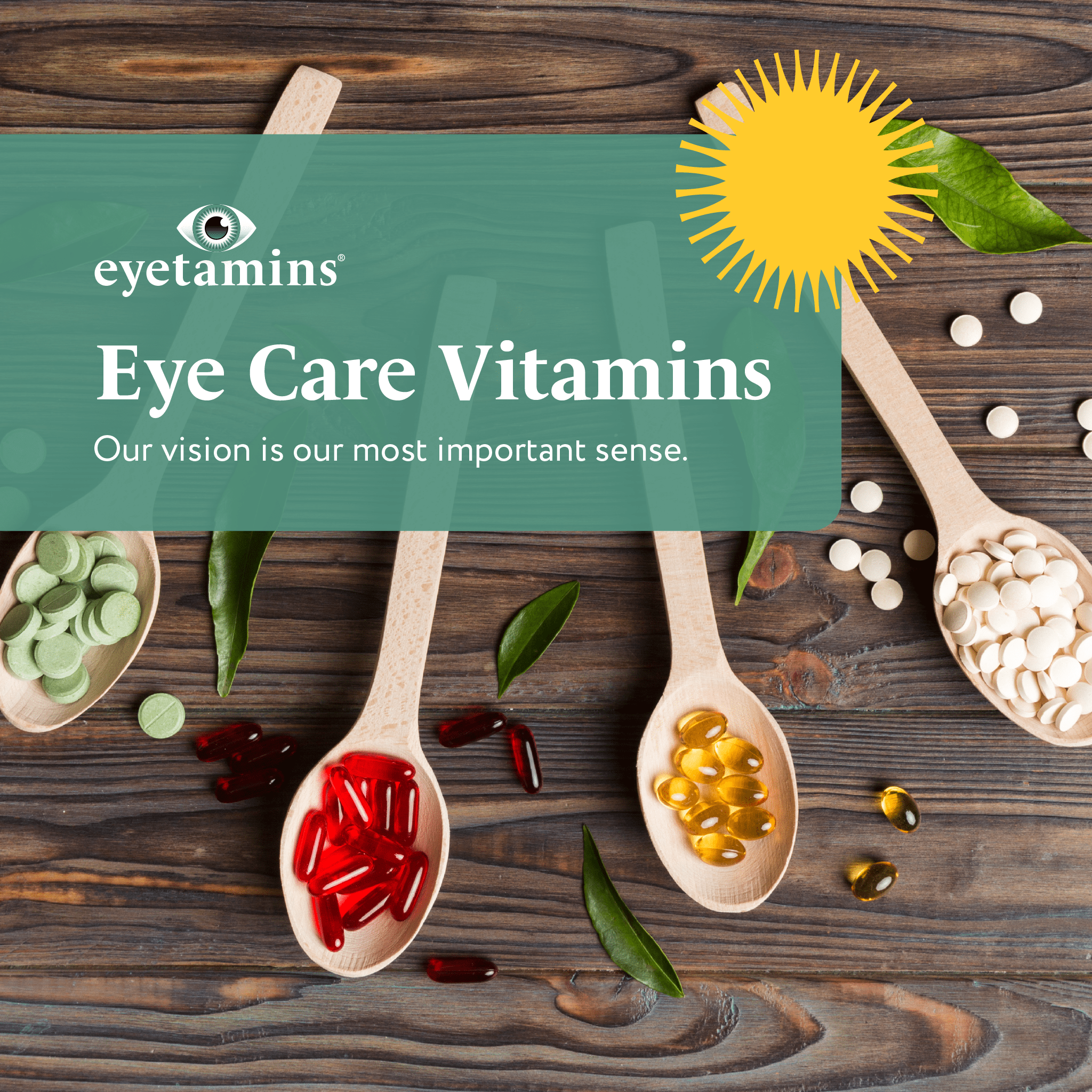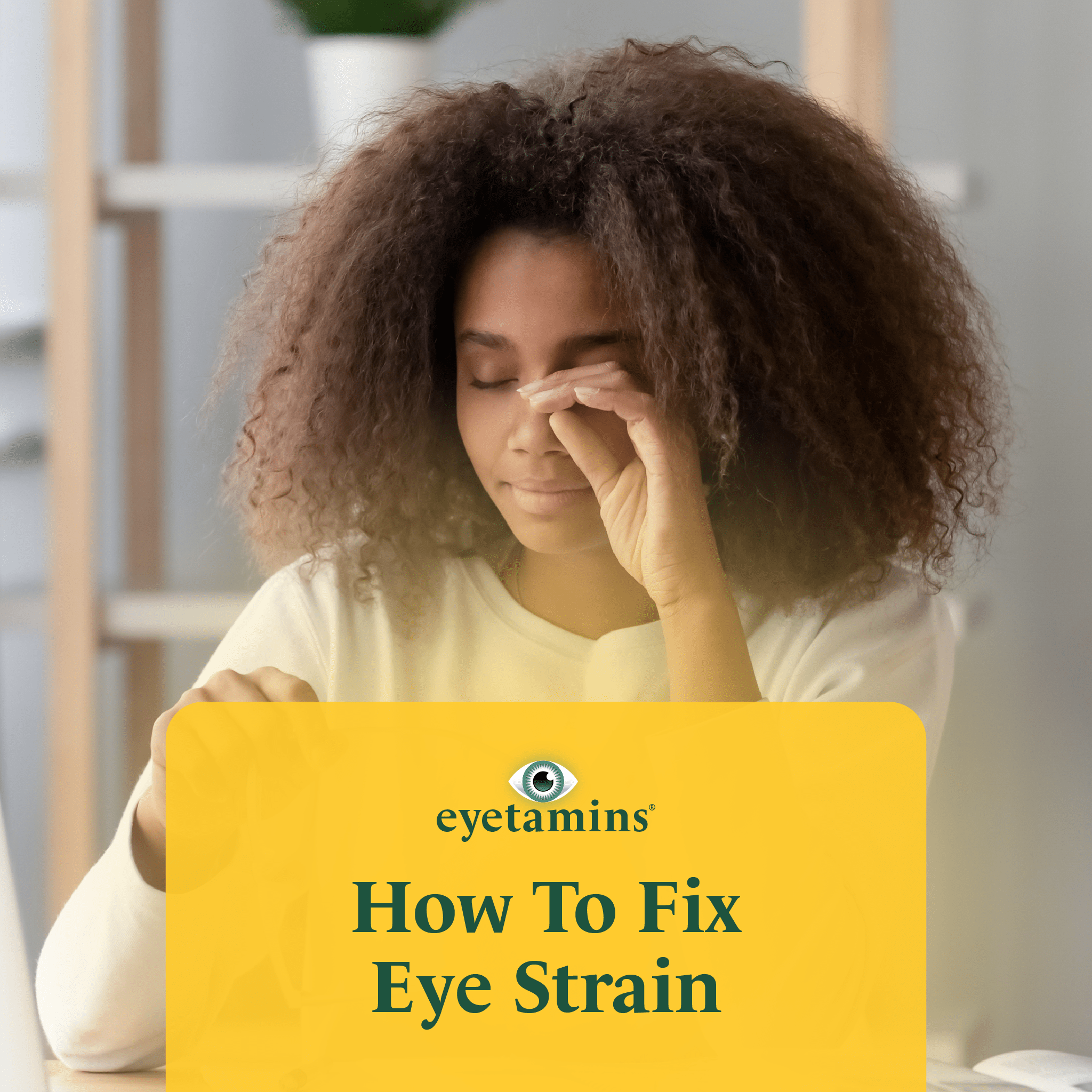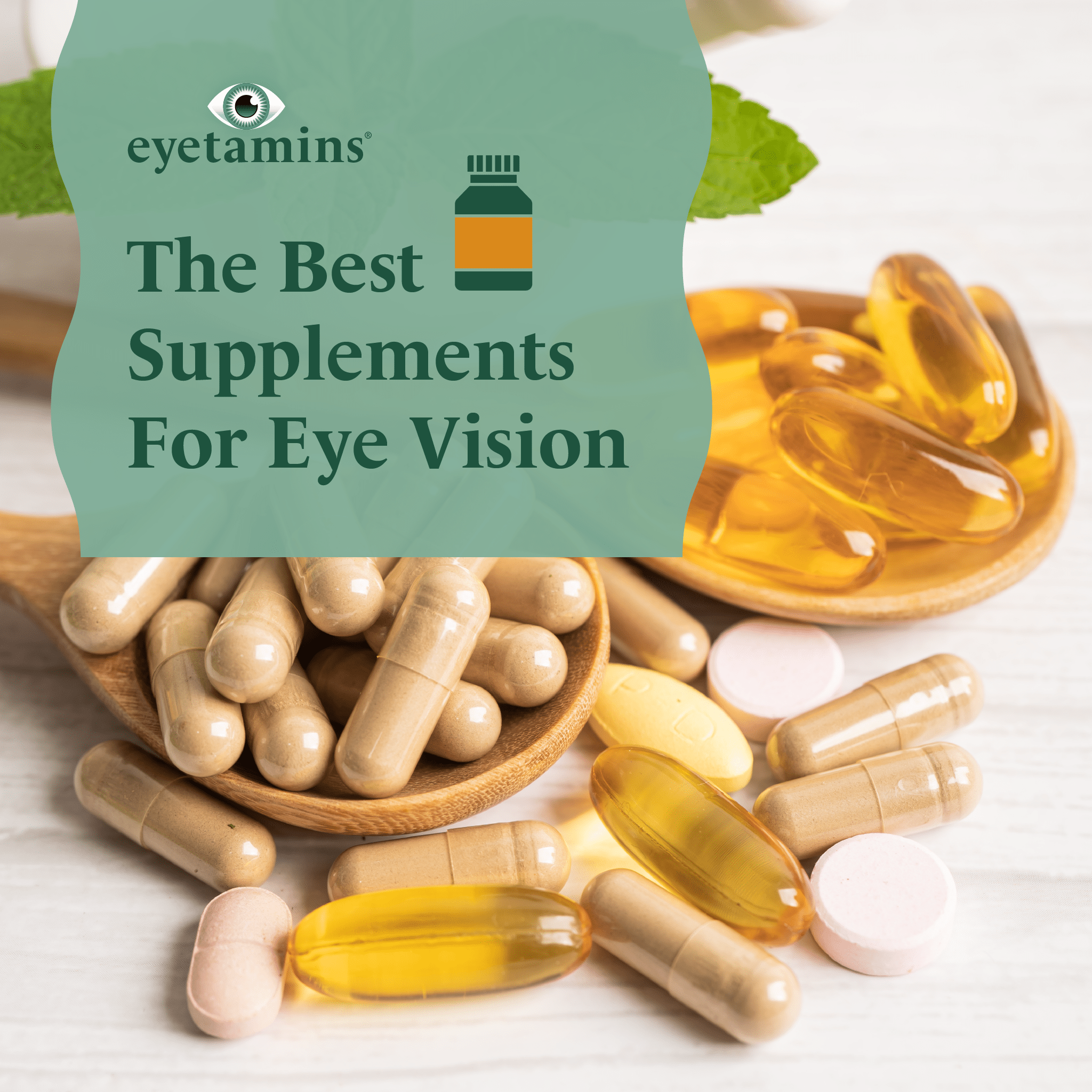· By Dr. Kaushal M. Kulkarni, M.D.
The 5 Best Vitamins for Supporting Vision
If you experience blurry eyesight, objects probably look out of focus and hazy. Blurriness can occur in both eyes, but in some people, it may only affect one eye.
What can you do to improve this symptom? In this article, we will explain some of the many causes blurry vision, and the best vitamins to support our eyesight.

What Causes Blurry Vision?
Knowing exactly what is causing your blurry vision could mean a big difference in the improvement or deterioration of your condition. If you catch it in time, you could save your eyes from more possible damage.
On the one hand, blurred eyesight could be caused by something temporary such as an eye infection, or it could signify a more serious problem that could eventually lead to vision loss. Or it might even be a random one-time event! Let’s explore what may be causing your issue.
This phenomenon has a thousands of possible causes. Most commonly, it is due to refractive errors like nearsightedness, farsightedness, and astigmatism. You may be due for a checkup with your optometrist for a prescription and a brand new pair of glasses.
However, more serious underlying factors may be already at play. They may be:
- Glaucoma: This group of eye conditions is characterized by damage to the optic nerve caused by high pressure in your eye. It is one of the leading causes of blindness in elderly people but can occur at any age. Blurred eyesight is specifically a symptom of acute angle-closure glaucoma.
- Cataracts: Sometimes indistinguishable from blurry eyesight are cataracts. This occurs when objects are obscured by clouds on the lens of your eye. This makes your overall vision appear “milky”. Cataracts are a clouding of the lens of the eye, which is usually clear. This causes blurry vision and blind spots.
- Age-related macular degeneration (AMD): AMD is an eye disease that can blur your central vision, due to degeneration of the macula caused by age and environmental factors. The macula is part of the retina that controls the sharpness of our vision. Though it doesn’t cause complete blindness, it can seriously impair your ability to see faces read, or drive.
No matter what, if you experience blurred eyesight, we highly recommend visiting your optometrist or ophthalmologist. Even though in most cases the cause may not be serious, it is still important to find out what the issue is to prevent future problems.
In addition to, and after an eye doctor visit, if everything checks out OK, we also strongly recommend loading up on the nutrition your eyes need to support your long-term eye health. We’ve researched some of the best vitamins for vision and compiled them for you here.
The 5 Best Vitamins for Supporting Vision
1. Vitamin C
If you don’t get enough vitamin C, you probably feel tired, weak, and irritable. Not only is it vital to your body’s healing process, but your body also needs it to form blood vessels, cartilage, muscle, and collagen.
Sources of vitamin C:
- Bell peppers
- Cauliflower
- Brussels sprouts
- Strawberries
- Kiwi
- Papaya
- Broccoli
- Spinach
- Citrus fruits
2. Vitamin E
Being deficient in vitamin E can weaken the cells in our retina that receive light, as well as other eye cells. If the deficiency in vitamin E is high, then this could lead to loss of vision over time, as well as a weakened immune system.
- Powerful antioxidant: Another extremely important vitamin for eye health is vitamin E. Alpha-tocopherol, a type of vitamin E, is known to fight free radicals which can cause cataracts.
- Positive effect on AMD: When combined with vitamin C, lutein, zeaxanthin, and zinc, vitamin E has been known to decrease the effects and development of AMD.
Sources of vitamin E:
- Peanuts
- Hazelnuts
- Almonds
- Soybean oil
- Wheat germ
- Sunflower oil
- Beets
- Spinach
- Red bell peppers
- Asparagus
- Avocados
- Mangos
3 & 4. Lutein and Zeaxanthin
Some of the best supplements for vision are lutein and zeaxanthin. Lutein and zeaxanthin are both carotenoids that come from plants. Being deficient in them can lead to low pigment density and a higher risk of developing AMD.
- Antioxidants: Both lutein and zeaxanthin help protect our eyes from free radicals, including from blue light. Blue light rays are emitted from screens, the sun, and LED light. These carotenoids can absorb the blue light due to their color before it can penetrate and cause long-term vision problems.
- Lowers risk of developing advanced AMD: The AREDS 2 study found that those patients who took lutein and zeaxanthin showed an 18% lowered risk of developing advanced AMD than those patients who took beta-carotene.
Sources of lutein and zeaxanthin:
- Spinach
- Beans
- Carrots
- Kale
- Broccoli
- Sweet potatoes
- Egg yolks
5. Zinc
Did you know that our eyes have high levels of the mineral zinc? This mineral has a major role in the creation of our very DNA, the growth of our cells, and the formation of the visual pigments of your retina. Having a zinc deficiency can lead to night blindness, loss of appetite, stunted growth, and impaired immune function.
- Antioxidant: Zinc can help prevent free radical damage that causes AMD. An intake of 25mg of zinc daily is recommended to help prevent and slow the progression of AMD.
- Helps protect from UV rays: Zinc and vitamin A create a pigment called melanin, which protects your eyes against oxidative stress and can have an impact on AMD patients.
Sources of zinc:
- Oysters
- Chickpeas
- Legumes
- Pumpkin
- Almonds
- Chicken
- Beef
In addition to these five supplements for vision, make sure you are getting plenty of vitamin A and B vitamins. We also recommend two emerging powerhouses for visual health that are some of the best supplements for improving eyesight. They are:
European Bilberry
Bilberry is an edible fruit native to Europe that has been used for centuries for medicinal purposes. High in antioxidants, the clinical studies are finally proving the varying benefits it has for our visual health.
- Helps eye fatigue: A study of 281 people who work on video display terminals showed that bilberry helped both objective and subjective measures of eye fatigue. 160 to 480 mg of powdered bilberry extract was shown to reduce eye dryness as well as improve other eye fatigue symptoms caused by working in front of a screen.
- Protects against retinal degeneration: Studies have shown that bilberry can help protect retinal cells and their function, which is key for preventing the progression of AMD.
- Improves visual function: A two-year study of glaucoma patients found that taking 120 mg of bilberry anthocyanins helped their eyesight by about 30%.
Saffron
Saffron is a plant used to make spices, food coloring, and medicine. It is known for its deep golden color and sometimes a rich reddish-brown. It is the most expensive spice in the world due to it being an extremely labor-intensive crop.
- Improves visual acuity: AMD patients taking saffron experienced sharpened distance vision after three months, 14.3% better than baseline.
- Improves retinal light sensitivity: Saffron has been shown to protect and prevent the breakdown of the macula, improving retinal sensitivity to light in early AMD patients.
People Also Ask
1. Can eye supplements improve vision?
No, generally not. However, with a combination of vitamin C, vitamin E, lutein, zeaxanthin, zinc, and copper, patients saw a reduced risk of progression from certain stages of AMD.
2. Can vitamins help blurry vision?
No, generally not. Vitamins have been shown to help support certain visual parameters and can benefit certain people with AMD.
3. Does vitamin C improve eyesight?
No, but vitamin C has been shown to help lower the risk of progression of AMD when combined with other important eye vitamins.
4. How can I support my vision naturally?
There are plenty of natural things you can do to support your vision. Try giving your eyes more rest, lubricating them, applying warm compresses, improving air quality, stopping smoking, wearing sunglasses, and taking vitamins.
5. What can I eat to help support my long-term eyesight?
Get enough leafy vegetables, oily fish, eggs, nuts, beans, citrus fruits, oysters, and pork. These contain many of the vitamins we’ve touched on today: lutein, zinc, vitamins C and E, as well as omega-3 fatty acids.
Get Them All in One Daily Dose
Investing in nutrition for your eyes is always a safe bet. Vitamin C maintains the connective tissue of your eye and vitamin E works as an antioxidant to fight harmful free radicals damage to your eyes.
Lutein and zeaxanthin protect your eyes from blue light that dries out and strains your vision and zinc can protect you from UV rays. Get them all in one daily dose!
We’ve included these five vitamins in our Vision Support supplement, along with powerful European bilberry and saffron. Vision Support is the best vitamin for eyesight! Shop our eye supplement products today!


